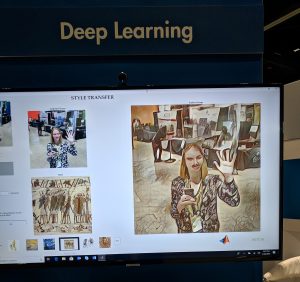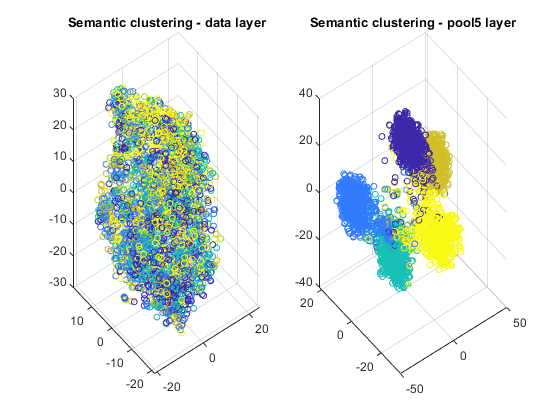Looking back on 2019

A shout out to my style transfer blog post.
Theme 1: Guest Bloggers
Guest bloggers are my favorite, since I love reading what other people are doing and writing about in deep learning.- Oge Marques wrote about deep learning twice this year, once about image augmentation and once about scene classification. His code is easy to follow and available on File Exchange. I really enjoy working with Oge because his depth of knowledge on deep learning, his attention to details, and his desire to educate and empower his audience. If you haven't already read them, check out the these blog posts:
- Jakob Kather had a paper published here, and then offered to write a blog post to give us insight into his research on deep learning for medical imaging. All about classifying medical images, Jakob gives us practical deep learning code and dealing with very large images in MATLAB.
- Barath Narayanan wrote about his work on Malaria Detection and showed transfer learning in action. His work is interesting, he likes MATLAB, and I would welcome working with Barath again in the new year! (hint hint).
From Oge's post on Image Augmentation.
Theme 2: Helpful tricks for deep learning
There were quite a few opportunities to learn tips and tricks for deep learning:- Maria wrote about Ensemble Learning, which is so simple I almost didn't believe it was a real thing. This concept is the perfect post on the blog: something that isn't in documentation, but definitely worth highlighting and very simple to execute in MATLAB.
- I wrote about CAM visualization, and there are many other visualizations in MATLAB for deep learning. Occlusion sensitivity could be a great topic for 2020.
- Maria also wrote about feature visualization. I enjoy her easy-to-understand approach to advanced topics, and I hope this continues in the new year.

From Maria's post on Feature Visualization.
Theme 3: New deep learning features
"What's new in deep learning" posts continue to be a fan favorite, and this will continue in 2020 with the release of MATLAB R2020a imminent. Highlights include:- R2019a examples and R2019b examples: Not only are these good examples, they also highlight applications of deep learning: audio, wireless, reinforcement learning. This seems to be a good way to compile new examples and keep status of what's new in the product. I'll continue this next year!
- -> Reinforcement Learning Ebooks: In exchange for your email address, there are three ebooks highlighting RL concepts and how to incorporate them in your work. We see Reinforcement Learning as a trend that will continue in 2020, so best to get ahead of it and learn the basics now!
- -> New Machine Learning Onramp. Learn the key concepts of machine learning in a fun, easy to understand, and interactive way. In addition to a Deep Learning Onramp, the machine learning onramp is a free tool to help familiarize you with the basics and then send you off into the world ready to learn more.
- -> Data Science Things: Heather Gorr (@HeatherGorr) has been prolific creating excellent data science content this year. This includes a thorough video series on our website here, and a Coursera course. I hope to have more opportunities to work with her next year!

Heather teaching me things in the video studio (as usual!)
- Category:
- Deep Learning
 Cleve’s Corner: Cleve Moler on Mathematics and Computing
Cleve’s Corner: Cleve Moler on Mathematics and Computing The MATLAB Blog
The MATLAB Blog Guy on Simulink
Guy on Simulink MATLAB Community
MATLAB Community Artificial Intelligence
Artificial Intelligence Developer Zone
Developer Zone Stuart’s MATLAB Videos
Stuart’s MATLAB Videos Behind the Headlines
Behind the Headlines File Exchange Pick of the Week
File Exchange Pick of the Week Hans on IoT
Hans on IoT Student Lounge
Student Lounge MATLAB ユーザーコミュニティー
MATLAB ユーザーコミュニティー Startups, Accelerators, & Entrepreneurs
Startups, Accelerators, & Entrepreneurs Autonomous Systems
Autonomous Systems Quantitative Finance
Quantitative Finance MATLAB Graphics and App Building
MATLAB Graphics and App Building









Comments
To leave a comment, please click here to sign in to your MathWorks Account or create a new one.